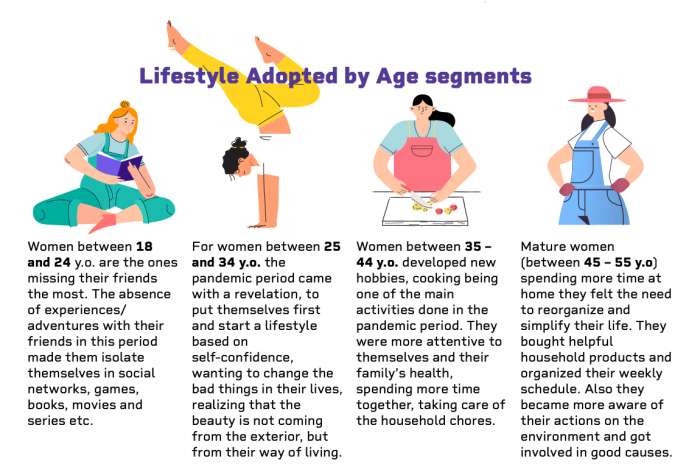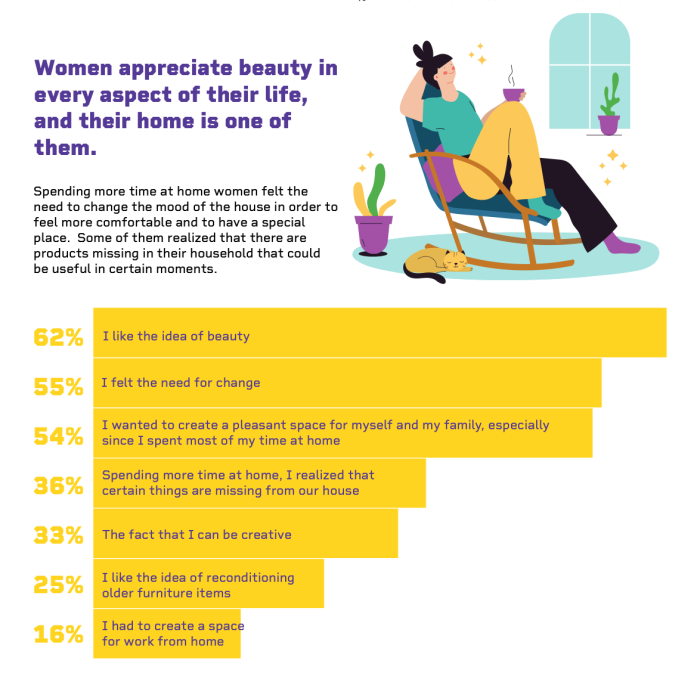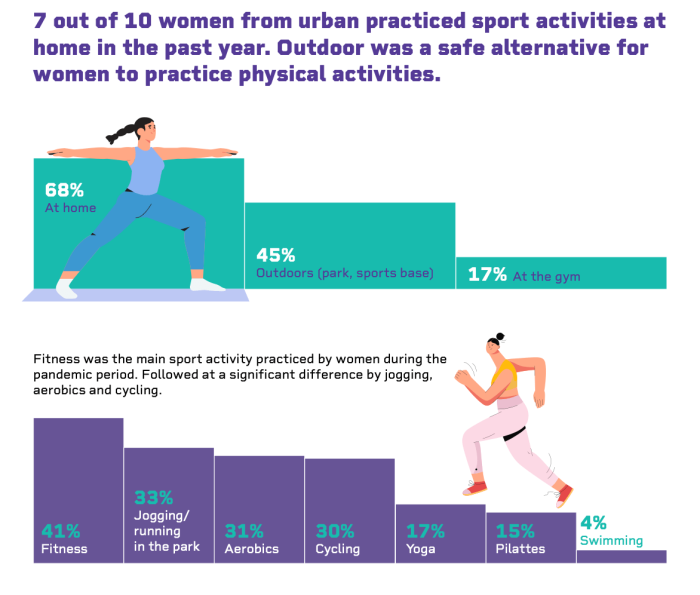According to the study “The impact of the COVID-19 pandemic on women” carried out by Starcom Romania, the rhythm of everyday life for women in Romania has slowed down since the pandemic. In the absence of direct interactions with close ones, women have experienced feelings of worriedness, tiredness and agitation. On the other hand, this period has offered them the opportunity to rediscover themselves, with 33% of them realizing that they want to change their job and 18% developing new hobbies, especially cooking. Women from the urban environment aged between 18 and 24 are the ones missing their friends the most (56%). The absence of new exepriences and adventures with them has determined these women to turn to books, movies and series, games and social networks.
For women aged 25 to 34, the pandemic period came with a wish to put themselves first and change their lifestyle by adopting greater self confidence. Women aged 35-44 have developed hobbies (19%), and cooking is one of their main activity during the pandemic. Moreover, they were more attentive towards their own and their loved ones’ health.
More mature women (45-55) spent most of their time at home, where they felt the need to simplify their life (25%). They purchased new home appliances and reorganized their daily routine, becoming more aware of their actions’ impact on the environment and getting involved in different social causes.
Impact of COVID-19 on professional life
Most women (43%) were disappointed by the fact that they could not develop their professional life, and 33% looked for a new job during this period, a percentage significantly higher than of those who actually lost their job (21%). However, the pandemic has made house chores easier to manage (41%) and boosted the attention to children’s education (26%). Although they were also disappointed by the lack of professional opportunities in this period (48%), young women aged 18-24 adapted more easily to the changes in the pandemic period, managing to obtain a balance between work tasks and house chores (48%) and having more personal time (37%), which they spent including by taking online courses to acquire new skills (38%).
Similarly, the pandemic was also an obstacle to the professional development of women aged 25-44, and 33% of them realized they wanted to change their job. They enjoyed time with their children, but their attention to work tasks dropped (25%). Compared to other age groups, mature women (45-55) reported fewer frustrations deriving from working from home.
Worriedness and tiredness are the main feelings experienced during the pandemic.
As for the feelings experienced by women in a period of heightened uncertainty, these were mainly negative. The most acute feeling experienced was worriedness (43%), particularly among those with higher education. This was followed by tiredness (41%), fear and agitation (33%).
Women over 45 were the most tired and feared for the safety of their families. The younger age group, 25-34, experienced anger and frustration due to isolation, while women aged 18-24 had a more positive attitude, felt happier than other age groups, and were more beautiful and energetic after having discovered new passions and hobbies.
Cooking became a hobby
While younger age groups perceived cooking as relaxing, mature segments were attracted by details, such as the ingredients used and plating, considering cooking as a reason to bring together loved ones.
The age group 18-24 developed the most hobbies in the last months: cooking (67%), watching movies and series (50%), doing sports activities (44%), health and nutrition (37%), make-up (35%), personal care routine (29%), as well as personal and professional development through online courses (25%). On the other hand, mature women used their free time to play with children and read. At the same time, they focused on health and nutrition in order to take care of their family.
Home interior, a major influence on mood
Once they started spending more time at home, women felt the need to change the interior of their homes, seeking a sense of comfort and well-being. 55% of them felt the need for change, and 54% wanted to create a special space.
Women avoided gyms during this period and practiced sports at home or outdoors More than one third of interviewed women (33%) have engaged in sports activities. For them, fitness was the main activity (41%), followed at a significant difference by jogging (33%), aerobics (31%) cycling (30%).
Featured products
 All Publicis Groupe Romania proprietary data tools in one place.
All Publicis Groupe Romania proprietary data tools in one place.Discover the power of our tools and feel free to get in touch.











